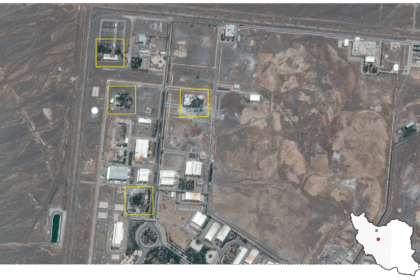Israel’s Stark Warning to Iran: “Tehran Will Burn”
The geopolitical fault lines in the Middle East have once again erupted into crisis as Israeli officials issued a chilling warning to Iran: “Tehran will burn” if its attacks on Israeli territory and interests continue. This dire threat reflects the rapidly deteriorating relations between the two regional powers, as their long-simmering shadow war threatens to explode into open conflict.
In recent weeks, Iran has ramped up its military activities through both direct actions and support of proxy groups across the region, drawing fierce responses from Israel. The escalation has triggered alarm among global powers who fear that the spiral of retaliation and counter-retaliation could lead to a full-scale war in the heart of the Middle East.
The Spark: Drone Strikes, Missile Attacks, and Proxy Wars
The latest tensions were sparked by a series of Iranian-led attacks on Israeli military assets and alleged support for militant operations along Israel’s borders. Israeli intelligence reports point to increased Iranian involvement in Lebanon, Syria, and Gaza—where Tehran has been accused of supplying weapons and tactical guidance to Hezbollah and Hamas.
According to Israel Defense Forces (IDF), multiple drones and short-range missiles, believed to be Iranian in origin or controlled by its proxies, were intercepted over Israeli airspace. These events triggered retaliatory airstrikes by Israeli fighter jets deep inside Syria, targeting warehouses, command centers, and supply lines allegedly used by the Islamic Revolutionary Guard Corps (IRGC).
Speaking at a high-security cabinet briefing, an Israeli military official said, “We are under no illusion about Iran’s intentions. If Tehran continues to arm our enemies and violate our sovereignty, we will respond with fire. If needed, Tehran will burn.”
Iran’s Response: Defiance and Counter-Warnings
Iranian leaders have responded with characteristic defiance, denying direct involvement in the recent strikes but affirming their right to support “resistance forces” against Israeli “aggression.” The IRGC commander, Major General Hossein Salami, declared in a televised address that any attack on Iranian soil would be met with “unprecedented retaliation,” and warned Israel against miscalculating Iran’s capabilities.
In addition, Iranian state media emphasized that Iran’s missile program remains “non-negotiable,” and broadcast images of underground missile silos and ballistic launch exercises. Iran has also reportedly increased its naval activities in the Persian Gulf, further adding to tensions in the Strait of Hormuz—a critical global oil transit route.
International Reactions: A Delicate Balancing Act
The international community, already overwhelmed by global instability, is watching the Israel-Iran crisis with increasing concern. The United States reaffirmed its unwavering support for Israel’s right to self-defense, while urging both parties to avoid escalation. U.S. Secretary of State emphasized diplomatic restraint, but added that Washington “will not hesitate to defend our allies.”
European powers, including Germany and France, have called for immediate de-escalation, warning that further hostilities could destabilize the entire region. Meanwhile, Russia and China have taken a more ambiguous stance, urging “mutual respect of sovereignty” but warning Israel against striking Iranian territory directly.
The United Nations has convened emergency discussions, with the Secretary-General urging “all parties to step back from the brink of war.”
Historical Context: A Longstanding Hostility
The hostility between Iran and Israel is rooted in decades of political, ideological, and military rivalry. Since the 1979 Iranian Revolution, Iran has consistently refused to recognize the state of Israel, labeling it a “Zionist regime” and backing militant groups opposed to its existence.
For its part, Israel views Iran as its greatest strategic threat—primarily due to Iran’s nuclear ambitions, missile programs, and its sponsorship of groups like Hezbollah and Hamas. The shadow war between the two has included cyberattacks, targeted assassinations, airstrikes in Syria, and maritime skirmishes.
In April 2024, Iran launched an unprecedented wave of drones and missiles at Israel in retaliation for a bombing of its Damascus consulate, which Iran attributed to Israeli intelligence operations. While Israel’s Iron Dome and Arrow defense systems neutralized the majority of the threats, the psychological and strategic shock has lingered.
What’s at Stake?
The stakes are monumental. A direct war between Israel and Iran would not only impact millions of lives in both countries but could engulf the entire Middle East in conflict. Lebanon, Syria, Iraq, and Gaza could become battlegrounds. Global oil markets would likely be disrupted, and there is the ever-present risk of drawing in superpowers and regional alliances.
Moreover, the specter of nuclear escalation looms in the background. While Iran maintains that its nuclear program is peaceful, Israel has repeatedly warned that it will not allow Tehran to acquire nuclear weapons. If diplomatic channels fail, pre-emptive military action could once again be on the table.
Diplomatic Solutions: Fading Hopes?
Despite the rising tensions, back-channel diplomacy continues, with regional actors such as Turkey, Qatar, and Oman attempting to mediate. However, mutual distrust remains deep. Israel demands a complete halt to Iranian military activities near its borders and an end to arms shipments to Hezbollah. Iran, on the other hand, insists on its right to support what it calls “resistance movements” and accuses Israel of warmongering.
The Abraham Accords—through which Israel normalized relations with several Arab countries—have shifted the regional balance, but also increased Iranian anxiety about strategic encirclement. Tehran perceives the growing defense cooperation between Israel and Gulf states as a direct threat.
Conclusion: A Dangerous Crossroads
Israel’s fiery warning that “Tehran will burn” marks a dangerous turning point in the already volatile Middle East equation. While the rhetoric may be part of a deterrence strategy, the possibility of miscalculation is dangerously high. With so many actors involved and so much at stake, a single incident—real or perceived—could ignite a broader war.
Now more than ever, the international community must push for meaningful diplomacy and establish clear red lines to avoid catastrophe. If tensions are allowed to escalate unchecked, the region could descend into chaos, with consequences far beyond its borders.
The world watches—and hopes—that war is not the path chosen.










